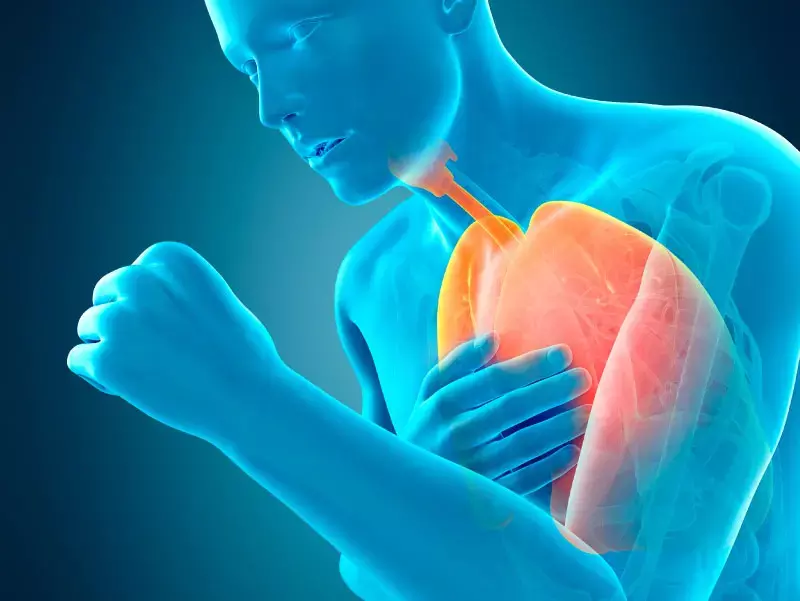- Home
- Medical news & Guidelines
- Anesthesiology
- Cardiology and CTVS
- Critical Care
- Dentistry
- Dermatology
- Diabetes and Endocrinology
- ENT
- Gastroenterology
- Medicine
- Nephrology
- Neurology
- Obstretics-Gynaecology
- Oncology
- Ophthalmology
- Orthopaedics
- Pediatrics-Neonatology
- Psychiatry
- Pulmonology
- Radiology
- Surgery
- Urology
- Laboratory Medicine
- Diet
- Nursing
- Paramedical
- Physiotherapy
- Health news
- Fact Check
- Bone Health Fact Check
- Brain Health Fact Check
- Cancer Related Fact Check
- Child Care Fact Check
- Dental and oral health fact check
- Diabetes and metabolic health fact check
- Diet and Nutrition Fact Check
- Eye and ENT Care Fact Check
- Fitness fact check
- Gut health fact check
- Heart health fact check
- Kidney health fact check
- Medical education fact check
- Men's health fact check
- Respiratory fact check
- Skin and hair care fact check
- Vaccine and Immunization fact check
- Women's health fact check
- AYUSH
- State News
- Andaman and Nicobar Islands
- Andhra Pradesh
- Arunachal Pradesh
- Assam
- Bihar
- Chandigarh
- Chattisgarh
- Dadra and Nagar Haveli
- Daman and Diu
- Delhi
- Goa
- Gujarat
- Haryana
- Himachal Pradesh
- Jammu & Kashmir
- Jharkhand
- Karnataka
- Kerala
- Ladakh
- Lakshadweep
- Madhya Pradesh
- Maharashtra
- Manipur
- Meghalaya
- Mizoram
- Nagaland
- Odisha
- Puducherry
- Punjab
- Rajasthan
- Sikkim
- Tamil Nadu
- Telangana
- Tripura
- Uttar Pradesh
- Uttrakhand
- West Bengal
- Medical Education
- Industry
Acetazolamide may prevent mountain sickness in COPD patients and healthy adults: NEJM

Switzerland: Preventive acetazolamide medication decreased the incidence of adverse altitude effects needing intervention in chronic obstructive pulmonary disease (COPD) patients. And, also reduced the incidence of acute mountain sickness (AMS) in healthy lowlanders 40 years of age or older during a high-altitude vacation, this was shown in a study conducted by c and team. The findings of this work were published in The New England Journal of Medicine on 22nd December 2021.
The effectiveness of acetazolamide in reducing unfavorable altitude effects in patients with moderate to severe chronic obstructive pulmonary disease (COPD) and healthy lowlanders 40 years of age or older was investigated in this study.
Experiment 1 was a randomized, double-blind, parallel design trial in which 176 COPD patients were given acetazolamide capsules (375 mg/day) or a placebo for 24 hours before spending two days at 3100 m. The individuals' mean (SD) age was 579 years, and 34% were female. At 760 m, COPD patients exhibited pulse oximetry oxygen saturation of 92 percent or higher, arterial partial pressure of carbon dioxide less than 45 mm Hg, and mean forced expiratory volume in 1 second of 6311% of expected.
In trial 1, the primary outcome was the occurrence of the composite endpoint of altitude-related adverse health effects (ARAHE) at 3100 m. AMS and symptoms or discoveries important to well-being and safety, such as severe hypoxemia, were ARAHE criteria. The second trial included 345 healthy lowlanders. Their average age was 537 years, and 69% were female. The participants in trial 2 followed the same regimen as the COPD patients in trial 1. The primary outcome of trial 2 was the occurrence of AMS as measured by the Lake Louise questionnaire score at 3100 m.
The key findings were as follow:
1. ARAHE occurred in 68 of 90 (76%) of COPD patients getting placebo and 42 of 86 (49%) receiving acetazolamide in trial 1 (hazard ratio, 0.54).
2. The number required to treat (NNT) to prevent one ARAHE case was four.
3. In trial 2 of healthy people, 54 of 170 (32%) received a placebo and 38 of 175 (22%) received acetazolamide (hazard ratio, 0.48).
4. The NNT to avoid one occurrence of AMS was ten. There were no significant adverse effects in these studies.
In conclusion, "Acetazolamide cut the danger in half, had few side effects, and was thus more practical than oxygen treatment. At 3100 m, acetazolamide reduced the risk of AMS by about one-third compared to placebo; acetazolamide lowered the risk of AMS by about one-third," wrote the Authors.
Reference:
Acetazolamide to Prevent Adverse Altitude Effects in COPD and Healthy Adults. Michael Furian et. al. 2021, DOI:https://doi.org/10.1056/EVIDoa2100006
Medical Dialogues consists of a team of passionate medical/scientific writers, led by doctors and healthcare researchers. Our team efforts to bring you updated and timely news about the important happenings of the medical and healthcare sector. Our editorial team can be reached at editorial@medicaldialogues.in.
Dr Kamal Kant Kohli-MBBS, DTCD- a chest specialist with more than 30 years of practice and a flair for writing clinical articles, Dr Kamal Kant Kohli joined Medical Dialogues as a Chief Editor of Medical News. Besides writing articles, as an editor, he proofreads and verifies all the medical content published on Medical Dialogues including those coming from journals, studies,medical conferences,guidelines etc. Email: drkohli@medicaldialogues.in. Contact no. 011-43720751


